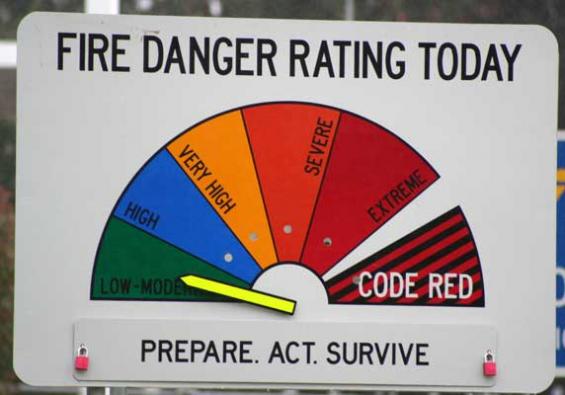Brenda's PhD research examined warning fatigue & the role it plays in decision-making for people in bushfire-prone areas. It is the first reported empirical examination of warning fatigue in the context of prolonged lead-time disasters. Brenda established that warning fatigue is a real issue & it is why warnings can be dismissed & bushfire risk underestimated. Her work will allow emergency managers to understand why communities may be warning fatigued, & how to create warning messages that mitigate this effect.
Psychological preparedness for bushfires

Risk perception and warning fatigue - the Australian bushfires
Why is is that some people react appropriately to warnings, and yet others not only ignore, but often seem to deliberately act against advice?
Brenda Mackie’s PhD thesis examined the role that warning fatigue plays in the risk perceptions, warning response and decision-making processes of people living in bushfire-prone areas. Her study showed that warning fatigue reduced attention to bushfire warnings, changing the way those surveyed thought about their bushfire risk and affecting their response to warnings. Unexpectedly, it was found that warning fatigue was highest at the beginning of the fire season, and decreased during the season. This was connected to ‘unofficial’ warnings, such as media reports during winter of the upcoming bushfire season – when official warnings were issued at the beginning of the fire season, the public were already tired of the message. Brenda proposed that if emergency and disaster agencies differentiate between rapid-onset and prolonged lead-time disasters, understand the complexities of warning fatigue and design their warnings accordingly, then disaster risk communication will become more effective, thereby increasing public engagement and improving disaster response. This new understanding of warning fatigue can help disaster-response agencies to improve their risk communications to communities, thereby better protecting lives and property.







